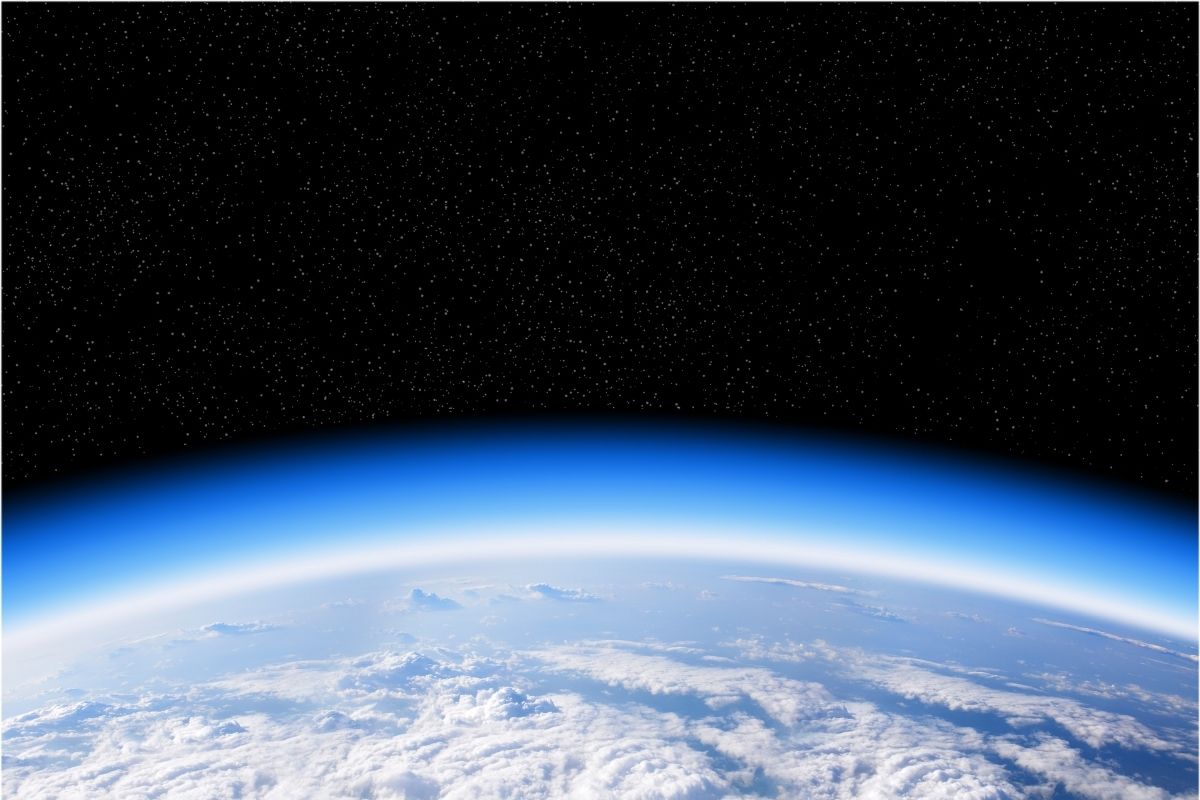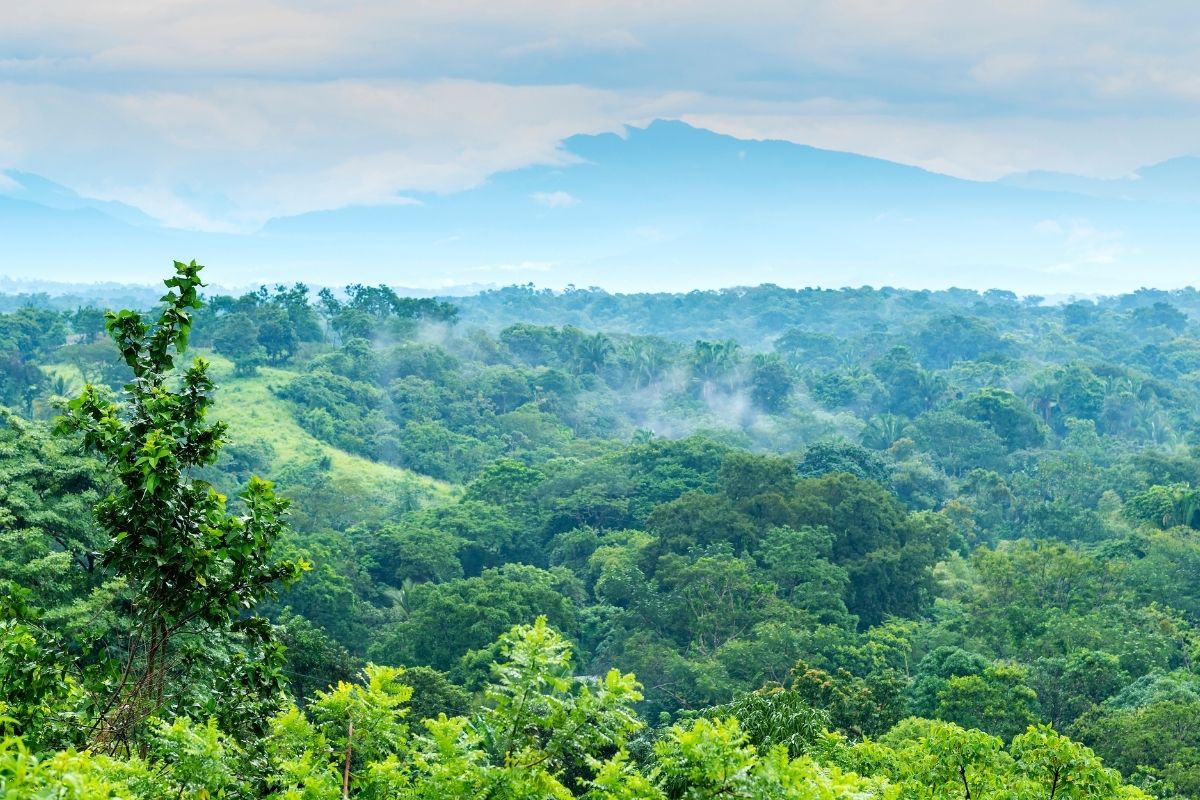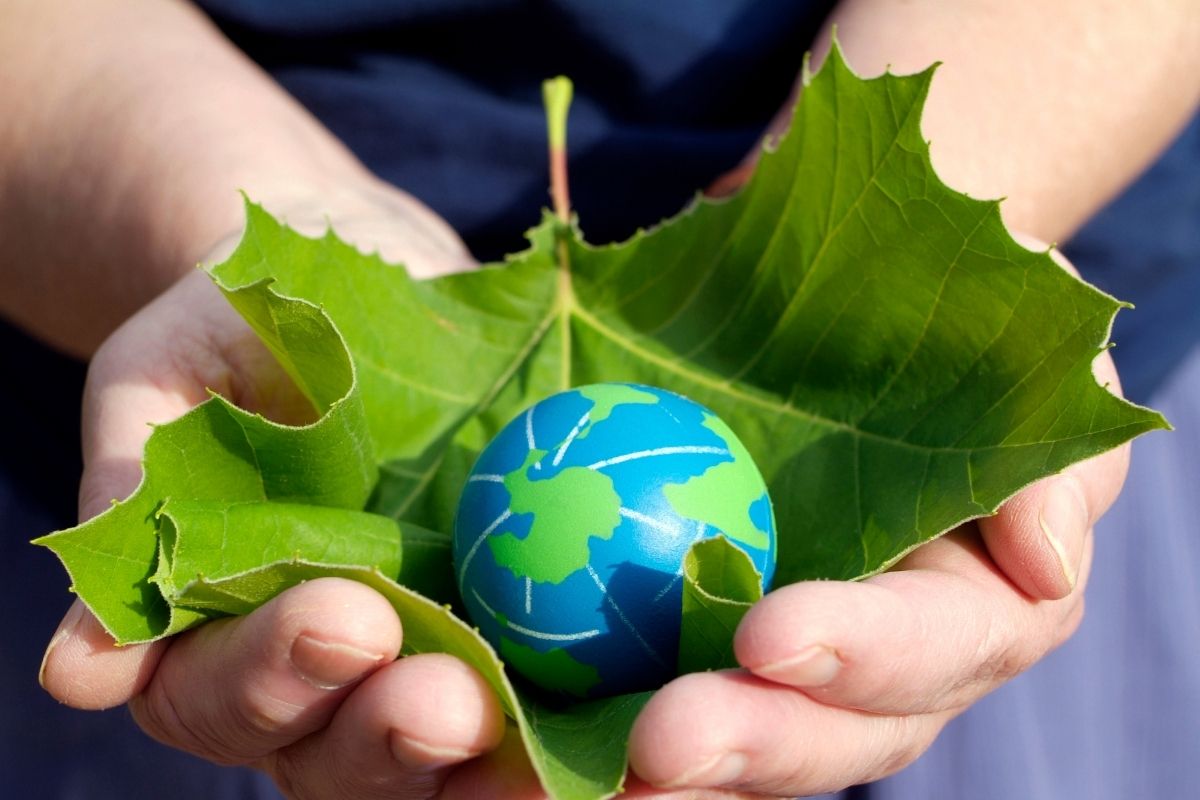Environment – Môi trường hay thế giới tự nhiên bao gồm tất cả các sinh vật sống và không sống xảy ra một cách tự nhiên. Thuật ngữ này thường được áp dụng cho Trái đất hoặc một số phần của Trái đất. Môi trường này bao gồm sự tương tác của tất cả các loài sống, khí hậu, thời tiết và tài nguyên thiên nhiên có ảnh hưởng đến sự tồn tại của con người và hoạt động kinh tế.
Khái niệm môi trường tự nhiên có thể được phân biệt thành các thành phần: Các đơn vị sinh thái hoàn chỉnh hoạt động như các hệ thống tự nhiên mà không có sự can thiệp lớn của con người văn minh, bao gồm tất cả các thảm thực vật, vi sinh vật, đất, đá, khí quyển và các hiện tượng tự nhiên xảy ra trong ranh giới và bản chất của chúng.
Các nguồn tài nguyên thiên nhiên phổ biến và các hiện tượng vật lý không có ranh giới rõ ràng, chẳng hạn như không khí, nước và khí hậu, cũng như năng lượng, bức xạ, điện tích và từ tính, không bắt nguồn từ hành động văn minh của con người.
Trường lớp và xã hội thường xuyên truyền thông và giáo dục trẻ phải “bảo vệ môi trường”. Bé con cũng rất quan tâm và mong muốn gây ấn tượng bởi thông điệp của chính mình. Vậy thì một Word Wall các từ vựng tiếng Anh theo chủ đề Environment sẽ giúp bé thể hiện lời nhắn nhủ của mình về môi trường với mọi người một cách ấn tượng.
Từ vựng chủ đề Environment – Môi trường
endangered species (n): những loài có nguy cơ tuyệt chủng
A specific species that is at risk for extinction due to natural and human forces
→ Some endangered species in the country were reintroduced via ex situ conservation.

—
evolution (n): sự tiến hóa
The idea that all things living developed from very few simple life forms through several physical changes
→ The rise in combustible prices and the environment evolution are other aspects that companies need to take into account.

—
extinct (adj): tuyệt chủng
When something is completely gone and doesn’t return
→ Humanity’s gone extinct because we destroyed the environment and the planet’s been overrun by evolutionary Abberations.

—
greenhouse effect: hiệu ứng nhà kính
The retention of radiation from the sun into the earth’s atmosphere that creates a rise in the temperature of the earth’s surface
→ The net emissivity may be low due to surface or atmospheric properties, including greenhouse effect.

—
habitat (n): môi trường sống
A specific dwelling place where an animal lives
→ Potential habitat is fragmented throughout the Fraser River Lowlands and extant populations appear to be isolated from one another.

—
insecticide (n): thuốc trừ sâu
Something that eliminates insects
→ These findings indicate that DEET has neurological effects on insects in addition to known olfactory effects, and that its toxicity is strengthened in combination with other insecticides.

—
atmosphere (n): không khí, khí quyển
The specific gas that surrounds the earth
→ CO emitted to the atmosphere shall be treated as the molar equivalent amount of CO2.

—
ozone (n): ozon
A type of oxygen that is produced by electricity and is in the air, mostly after a thunderstorm
→ Epidemiological and human exposure studies show that as ozone levels rise, adverse health symptoms increase.

—
poacher (n): kẻ săn trộm
A person who trespasses, usually to hunt or fish illegally
→ The turtles are already threatened by the poachers and the destruction of the beaches where they lay their eggs. Additionally they risk death due to blocked intestines.

—
pollution (n): sự ô nhiễm
The process or act of defiling
→ The method solves the problems about the complex process, high cost, environment pollution and harm to body health.

—
smog (n): khói bụi
The combination of smoke and fog in the air
→ We all hear and read a great deal these days about our polluted physical environment—acid rain, smog, toxic wastes.

—
biosphere (n): sinh quyển
The area that surrounds the earth that may support life
→ Attention is paid, in large, to the occurrence, distribution and accumulation of the element in the eco- and biosphere, but also to toxic effects, interactions with concomitant elements and to the essentiality to animals and humans.

—
conservation (n): bảo tồn
The act of preserving; to keep from being used up or lost
→ Ongoing project Environmental Conservation, Environment Canada (416) 954-5620 Sustainable wetlands are important to the health of the Great Lakes ecosystem.

Từ vựng tiếng Anh theo chủ đề Environment mở rộng
abiotic: vô sinh
Not involving, containing, or derived from living organisms
→ The production of allelochemicals are affected by biotic factors such as nutrients available, and abiotic factors such as temperature and pH.
—
biodiversity: đa dạng sinh học
The variety of plant and animal life in a habitat
→ Concerns about the erosion of biodiversity, therefore, remain.
—
biotic: sinh học
Of or relating to living organisms
→ We call it the biotic moisture pump, a new theory that is explained in a very simple way.
—
decomposition: sự phân hủy
The organic phenomenon of rotting
→ This corpse’s decomposition has slowed to almost zero.
—
ecology: sinh thái học
Study of the relations of organisms to their environment
→ I tripped on the reality of this ecology of creativity just last week.
—
ecosystem: hệ sinh thái
Organisms interacting with their physical environment
→ We are literally a teeming ecosystem of microorganisms.
—
hemisphere: bán cầu
Half of the terrestrial globe
→ Track one is heading east, track two to the southern hemisphere.
—
pesticide: thuốc giệt sâu
A chemical used to kill destructive insects or animals
→ It uses lots of pesticides, lots of fertilizer, lots of water.
—
population: dân số
A group of organisms of the same species inhabiting an area
→ The number of people on Facebook is greater than the population of the United States.
—
pressure: áp suất, áp lực
The force exerted by the atmosphere
→ Check the pressure of the tires.
—
reef: đá ngầm
A submerged ridge of rock or coral near the water’s surface
→ How does the reef work? Well, it’s very, very simple.
—
runoff: dòng chảy
The occurrence of surplus liquid exceeding capacity
→ If the sewer system is a combined sewer then it will also carry urban runoff (stormwater) to the sewage treatment plant.
—
sustainable: có thể chịu được
Using methods that do not cause harm to the environment
→ We want to sustain things that are gone or things that are not the way they were.
—
volcano: núi lửa
A fissure in the earth’s crust through which gases erupt
→ Volcanoes are important, because volcanoes produce atmospheres and they produce oceans.
